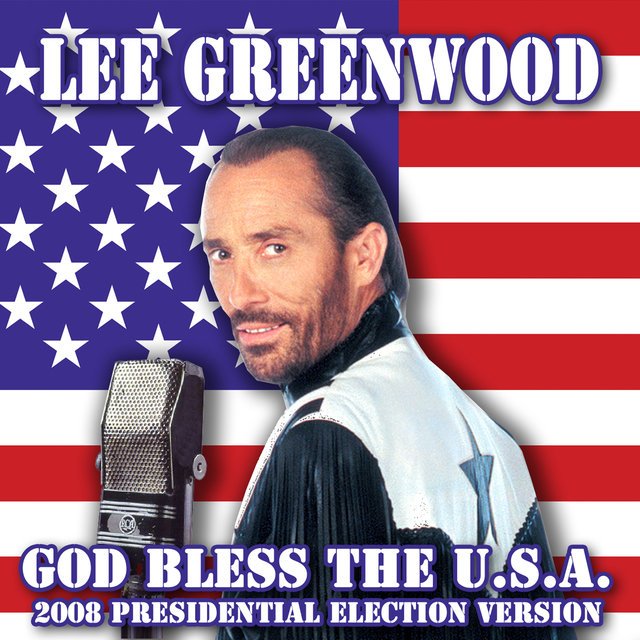Lee Greenwood and “God Bless the USA”: A Song of Patriotism and Nuance
Lee Greenwood and his signature song, ‘God Bless the USA,’ hold a unique position in American culture. Unveiled in 1984, the song swiftly became an anthem, resonating profoundly with a nation grappling with Cold War tensions and a resurgence of patriotism. However, ‘God Bless the USA’ is not a mere celebration. Greenwood’s music and the song’s lasting impact are more intricate, reflecting both the unifying force of patriotism and the ongoing discourse about American identity, particularly in the context of the 1980s.
Lee Greenwood: A Musical Journey
Lee Greenwood, born in Kansas in 1942, embarked on a musical journey that started in his early years. Influenced by gospel and country music, he honed his skills by performing at local fairs and talent shows. By the 1960s, Greenwood had made his way to Nashville, the heart of country music. His initial struggles mirrored those of many aspiring musicians. Despite finding success writing songs for other artists, including hits like ‘It Turns Me On’ recorded by Jerry Lee Lewis, his own recording career remained stagnant until the early 1980s.
The turning point in Greenwood’s career came in 1984 with the release of the album ‘You’ve Got a Good Love Comin’.’ This album featured a song that would redefine Greenwood’s career: ‘God Bless the USA.’ The song’s origin was deeply personal. Greenwood, profoundly affected by the 1983 shooting down of Korean Air Lines Flight 007, felt a surge of patriotism and a yearning for national unity. He later revealed, ‘I wanted to write it my whole life… I called my producer and said I have a need to do this.’
“God Bless the USA”: A Powerful Ballad of Patriotism
“God Bless the USA” is not just a powerful ballad that celebrates American ideals of freedom and opportunity. It’s a song that stirs deep emotions, evoking a sense of national pride, referencing the vastness of the American landscape (“from the lakes of Minnesota to the hills of Tennessee”) and the sacrifices made by those who came before (“and I won’t forget the men who died who gave that right to me”). The chorus, a soaring declaration of love for one’s country, became instantly recognizable: “And I’m proud to be an American where at least I know I’m free.”
The song’s release coincided with the 1984 Republican National Convention, where it was featured in a film about then-President Ronald Reagan. This association with Reagan, a popular figure known for his strong stance against the Soviet Union, further amplified the song’s patriotic message. “God Bless the USA” resonated with a nation seeking solace and strength during the Cold War.
Greenwood’s song didn’t just become a popular anthem; it became a symbol of unity. Its core message of national pride and appreciation for the freedoms enjoyed by Americans resonated with a broad audience, inspiring a sense of togetherness. “God Bless the USA” became a fixture at sporting events, rallies, and patriotic celebrations, serving as a rallying cry for a nation united in its love for its country. Greenwood himself became synonymous with the song, often performing it with a fervent intensity that mirrored the song’s emotional core.
The Complexities of “God Bless the USA”
However, “God Bless the USA” is not without its complexities. Critics have argued that the song presents a simplistic and idealized view of America, glossing over the country’s social and political struggles. The focus on freedom and opportunity can be seen as dismissive of the challenges faced by minorities and marginalized groups. Additionally, the strong military imagery present in some versions of the song, particularly those performed at sporting events, can be seen as promoting a narrow definition of patriotism.
Greenwood himself has acknowledged these complexities. He has stated that the song is “a song about unity” and that it’s important to remember the sacrifices made for those freedoms: “It’s not just waving a flag and feeling good about yourself.” The ongoing conversation surrounding “God Bless the USA” is not just a debate; it’s an invitation to reflect on the multifaceted nature of patriotism. The song’s enduring appeal lies in its ability to evoke a sense of shared national identity, even while prompting reflection on the complexities of that identity.
A Powerful Cultural Touchstone
Beyond “God Bless the USA,” Greenwood’s career has spanned decades and encompassed a wider range of themes. He has recorded numerous successful country albums, with hits like “Somebody’s Gonna Love You” and “Ringing in My Soul.” However, “God Bless the USA” remains his defining work.
“God Bless the USA” is still a potent cultural reference point. Its persistent ability to inspire a sense of national solidarity is demonstrated by its appearance at political gatherings, sporting events, and rallies. Still, its enduring appeal also acts as a reminder of the ongoing discourse about American identity and the obstacles that still need to be overcome. This song by Lee Greenwood is a celebration and a meditation at the same time, and it’s a powerful reminder of how music can bring people together and encourage important conversations about what it means to be an American.
